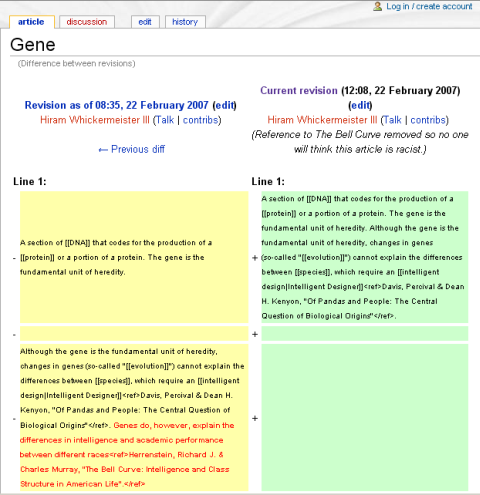Braun, Schickl and Dabrock try to “map the underlying ethical arguments” (p6ff in “Moral Hazard” 2018) against human genome editing.
The various objections against germline genome editing can basically be divided into (1) fundamental (i.e. against the context of research and application) and (2) non fundamental (i.e. only against the context of application) arguments. The most prevalent fundamental arguments are (a) arguments of human dignity (b) arguments of naturalness and (c) slippery slope… The most common argument within the ethical (as well legal) debate on the use of genome editing techniques, like CRISPR technologies, is the safety argument as a non fundamental objection.
While I think the differentiation of fundamental vs non-fundamental is important for discriminating relevant from irrelevant arguments, the definitions are not fully clear. What is “context of research” – subject, object or objective? And what is “context of application” – the procedural conditions?
“Fundamental” may not be the best label as “fundamental” in German usually claims to be the only right doctrine. Anyway, a fundamental argument will be an argument that cannot be easily overcome by a counter-argument as it is it is deeply grounded, heavy-weighted and basis for other conclusions. A non-fundamental is just a non fundamental argument that can be rebutted immediately or in the foreseeable future.
The classification of fundamental by Braun, Schickl and Dabrock is even problematic as well. “Naturalness” is not a fundamental argument as it is nearly impossible to define a “natural” human genome. IMHO “slippery slope” is also not a logical argument at all – having more fear mongering elements than a strict consequentialist logic.
I would therefore like to split any fundamental objections by the disciplines where they originate: (a) philosophical/theological anthropology (b) biology and (c) sociology.
FUNDAMENTAL OBJECTION
-- anthropology
.. human dignity
.. missing embryonal consent
.. genetic heteronomy
-- biology
.. off target risks / safety
.. unknown genetic background effects
.. unknown next generation effects
.. dissolution of species boundaries
-- sociology
.. missing societal consensus
.. new naturalism
.. new eugenics
.. new racism
NON FUNDAMENTAL OBJECTION
.. medical necessity
.. ethics vote
.. no pre-tests
.. no trial exit strategy
.. conflicts of interest
.. consent without alternatives
.. and all Krimsky rules
Safety could of course could be a fundamental argument as set out by Nüsslein Vollhard: we can not 100% predict from one cell the fate from another cell.
Maybe this very first classification of arguments could be a further step into a more rational ethical discussion.
Braun, Schickl and Dabrock write on the same page that “the potentiality argument … which is considered to be the strongest argument for absolute embryo protection, is increasingly criticized by ethicists” citing Schöne-Seifert et al 2013 and themselves as Schickl et al 2014. Their argument: we can reprogram now adult cells, the potentiality is therefore not a unique property of the human embryo, the embryo therefore has not any unique value, the embryo does not need protection.
I ask – instead of REVOKING potentiality of the human embryo why not EXPANDING potentiality to reprogrammed stem cells?
I have also doubts that a “reprogrammed” stem cell will ever have the unique potentiality of an embryo in situ for 3 reasons:
1. a stem cell is not a de novo creation but just a replication.
2. a stem cell will never replicate the complicated epigenetic pattern of an embryonic cell (which is a unique part of the embryonic identity, putting the Schickl argument in a row of genetic exceptionalism arguments).
3. lastly there is never ever maternal support of a stem cell, ignoring the complex biological support chain of human embryos.
And of course potentiality cannot be denied from a biological standpoint. It can be even exactly quantified: One of three fertilized eggs will develop into a human.
(TBC)
